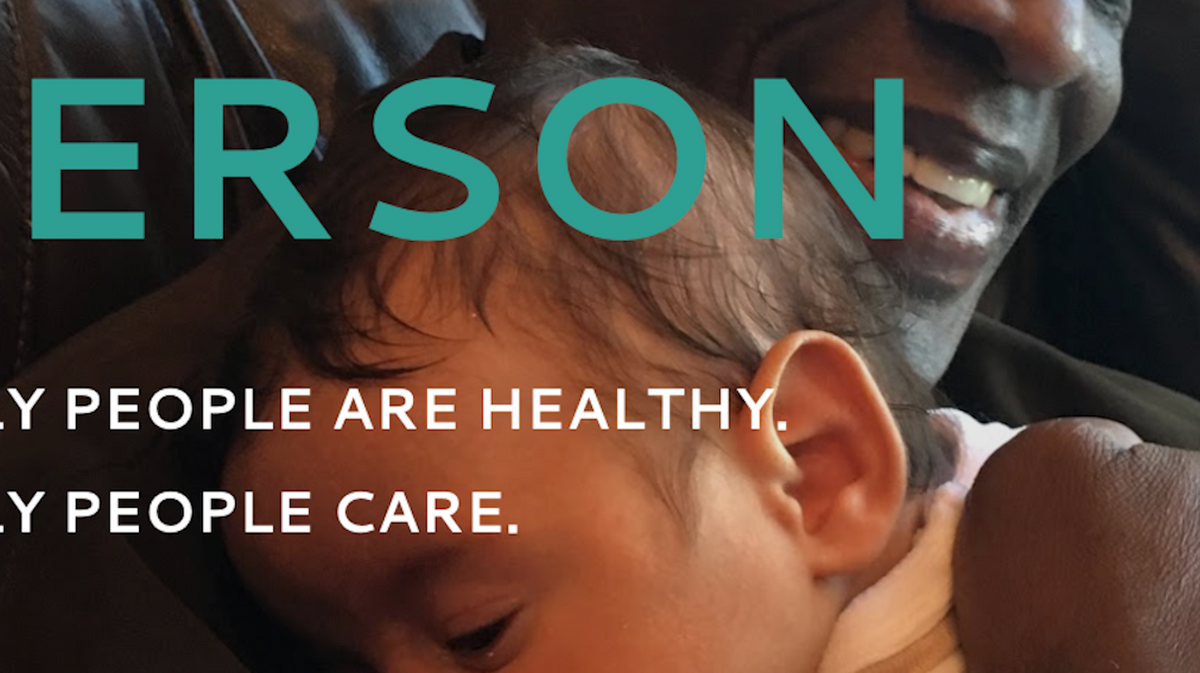Concepts for healthcare communication
A group of nonprofit health insurers hired me back in 2015, when the changes of the Affordable Care Act were sweeping across the country. In collaboration, we developed a powerful set of concepts they could use to communicate more clearly and honestly.


These are the some of the concepts we’ve identified as most important to start new and better conversations about health care in Minnesota. To use our concepts well, we have to understand what they mean outside the industry. Two important points:
- Any discussion of health policy speaks to our deepest hopes and fears—even for experts.
- Concepts derive their power from human feelings.
The significance of this idea can’t be overstated. To put it more bluntly: everything I have seen and read and heard suggests that healthcare is so very emotionally fraught that rational conversation about it is practically impossible. In fact, rational discussion about health policy is frequently suspect. That’s how important feelings are in the field the we work in.
RISK
Companies manage risk. People provide for care.

Understanding insurance requires and understanding of risk—namely, that insurance spreads risk across a pool of premium-payers. But the trouble is that human beings don’t (or perhaps can’t) understand our own health, or our family’s, in terms of risk. Accordingly, we have to explain the fundamental mechanism of insurance in terms that are both conceptually coherent and emotionally bearable.
- Avoid “risk” whenever possible. It’s not usually necessary to appeal to this concept to explain health plans’ decisions or make recommendations. Avoid the concept whenever possible—and when the concept is unavoidable, use “odds” or “chances” rather than risk. Risk is accurate, but also callous.
- Avoid a feel-good story about how insurance shields people from risk. Increasingly, it doesn’t. Thanks to the structure of our national health system, policyholders have to shoulder an increasing burden of financial responsibility—and an increasing burden of moral responsibility for difficult decisions (about choosing coverage, setting aside money for expenses, and deciding on treatments).
- Avoid the idea of “risk pools.” This concept can’t help but divide people into groups we didn’t choose to belong to, and with which we simply don’t feel a sense of fellowship.
- Talk about providing for care. It’s the plans’ job to think about risk; it’s my job, as a citizen, to provide for the care that my family and I might need one day. Insurance companies manage risk so that human beings can provide for care.
- Stay realistic. “Health insurance makes health care as affordable as possible.” “Having health insurance helps us provide for the medical care we might need.”
- Emphasize the individual. When you can’t avoid talking about a particular risk pool, speak whenever possible about a particular individual in the group rather than the group as a whole. “Someone in this group was likely to need a lot of medical care last year”; “If you get your insurance this way, you might be able to find a more affordable plan on MNsure.”
SYSTEM / COMPLEXITY
Systems only matter at the human scale.

Expert audiences make policy at the level of the large-scale systems that work together (or not) to keep Minnesota’s care delivery and finance systems functional. That is as it should be. And part of our mission is making these large-scale systems comprehensible to ordinary human beings (including human beings with power, like legislators and industry leaders). But at the level of daily life, nobody interacts with “the health system” except as a conceptual placeholder for complexity and frustration. Instead, we interact with health care on a very small scale, at the level of doctors, hospitals, clinics and pharmacies—our “healthcare neighborhood.” Our communications have to make large-scale systems comprehensible as they affect individual human interactions, and (in the other direction) to clarify how individual human interactions inform our recommendations for large-scale systems.
- Avoid the word “system.” In healthcare, “the system” is a placeholder for all that’s complex and frustrating. Even “systems,” plural, has the flavor of mechanical policy-talk. It’s very difficult to avoid “the health system,” but we should try.
- Avoid the appeal to complexity. Yes, it’s complicated; but nobody is interested in the internal difficulties of health insurance companies. “It’s complicated” is never a good answer—even and especially if it really is complicated.
- Avoid zooming out. While we are and must be a voice of expertise about the large-scale mechanics and economics of the health system, we have to avoid the temptation to answer human questions in system-scale terms.
- Name the parts and specify their interactions. Every system has parts, and those parts have names—so, whenever possible, be very specific about the parts of the system that are interlocking, and how. For example: “Doctors, hospitals and others who provide medical care negotiate the price of their services with health insurance companies”; “the federal government provides money to the state government in order to help the health plans cover these expenses,” etc.
- Emphasize the effort to simplify. Speak about unavoidable complexity by talking about what’s being done (or what should be done) to cut through it. “We’re working together with state officials to understand the care that Minnesotans who buy insurance on their own will need next year”; “the health plans use all the information they have to choose the best possible networks for Minnesotans.”
- Explain systems in terms of its human interactions. We can and must talk frequently about Minnesota-scale economics; but whenever this is necessary, descend to the particular as the final level of analysis: “Provider networks help make sure that we get the best possible care at the best possible prices. When you see an in-network doctor, you can be sure that you’re getting the best possible value for the premium you pay every month.” In the other direction, make it as clear as possible how recommendations for change are informed by better human interactions: “We believe that the proposed legislation will help secure Minnesotans’ access to the prescriptions they need by … .”
MONEY
The only money that matters to me is mine.

With respect to money, we have two competing goals: first, to explain the large-scale economics of the statewide health system in ways that advance the interests of the health plans; and second, to articulate health economics in terms that ordinary people find comprehensible and compelling. To accomplish both of these goals, it’s important to distinguish them from each other: health economics is a nation-scale problem, but the expense of medical care is a vividly human concern.
- Avoid “the cost of care.” The “cost of care” is a company- or government-sized idea, and it’s difficult to comprehend—and it feels cold and abstract.
- Never cry poor. There is no way in which even nonprofit health plans can plausibly be made to seem economically disadvantaged—even if, as we well know, they are sometimes in grave financial distress. Under no circumstances should it ever be said, or even implied, that the health plans are somehow struggling to make ends meet, or are suffering because others aren’t pulling their weight.
- Avoid laying blame. Even though other players in the industry really are working (actively or by accident) against the best economic interests of Minnesotans, this is never a helpful point to make.
- Explain cost in terms of individual expense. Explain large-scale health economics as it affects individual Minnesotans’ pocketbooks. The word expense is the word to use, since that’s the problem we feel most immediately. “It’s the health plans’ responsibility to make sure we can pay for all their members’ care, and the care Minnesotans need is more expensive than it ever has been before. We feel that expense directly in the premiums we pay every month.”
- Acknowledge human hardship. Simple acknowledgment goes a long way: “Premiums are increasing for many Minnesotans next year, and that’s very hard news to hear. For many of us, health expenses are a genuine hardship, and to have to pay more every month for insurance.”
- Explain large-scale economic problems with a view to collaborative problem-solving and specific recommendations. Rather than gesturing to the unsustainable economics of healthcare as the answer to any question, try to talk about how we’re working together to address such challenges: “Although the increasing expense of prescription drugs is a growing challenge, health plans, government leaders and care providers are working to find sustainable ways of keeping these costs in check. For instance … .”
HEALTH CARE
Health matters. Care matters more.

When it comes to health insurance, “health” is a placeholder—it’s an abstraction that answers the question, “What am I buying when I buy insurance?” But in ordinary experience, the benefit of health isn’t something I associate with my health insurance. What I do get from my insurance is care—and care means much more than just medical care. For us, the concept of care should embrace the whole range of health-promoting actions that contribute to the wellbeing of Minnesotans.
- Avoid “health” in the abstract. The health plans themselves have complicated and nuanced ways of talking about health. The Council need not intervene in that discussion. When it comes to the health insurance industry, “health” simply isn’t a concept that’s helpful.
- Leave “healthcare” to journalists and politicians. The space in “health care,” as we write the phrase, isn’t audible: people hear the term as healthcare, and healthcare is mostly synonymous with “the system.”
- Broaden care to include all health-promoting human actions. Doctors and nurses provide care—and so, in their own ways, do the people who work for the plans: “Like doctors and nurses, the people of Minnesota’s nonprofit health plans work every day to make care less expensive and more accessible.”
- Emphasize caring. The word isn’t as important as the concept: “The people of our health plans are deeply concerned about the expense of prescription drugs”; “we’re truly committed to policies that build on new insights in public health research.” And make sure to give everyone else credit for caring, too: “Like us, the Commissioner is working hard to improve access to care for Minnesotans. But we don’t believe that this policy is the best way to achieve that goal.”
- Talk about wellbeing. Since the plans do far more than pay medical bills, it makes sense to talk as much as possible about wellbeing—a broader and deeper concept than “health,” and one that tracks the current thinking in public health more closely: “it’s in everyone’s interest to improve wellbeing for all Minnesotans, not just provide for care when we get sick.”
FUTURE
The only credible vision of healthcare is of its future.

In 2015, the health system is changing so rapidly that it is simply incomprehensible, even to experts. No one can pretend to have a clear understanding of healthcare in the present—but we can and must have a clear and compelling vision of where we want healthcare to be in the future.
- Don’t talk about “change” in the abstract. Yes, healthcare has changed a lot and it’s only going to change more: everyone knows this already. Like “system,” “change” is a placeholder for more interesting ideas.
- Avoid “reform.” The idea of healthcare reform is toxic to a great many people—but more importantly, reform is essentially negative, emphasizing the need for change (rather than the desired future state).
- Focus on the future. Whenever possible, emphasize ends (rather than means), solutions (rather than problems): “This is one of the ways in which Minnesota’s health insurers would like to work toward providing affordable coverage for every single Minnesotan.”
- Articulate the questions clearly. Sometimes, we just don’t know what the future ought to look like—and in those cases, the greatest possible public service is to clarify the questions that matter: “Premiums have risen, it’s true. And to solve that problem, we need to ask a deeper question: namely, why does excellent medical care need to be so expensive?”
PERSON
Only people are healthy. Only people care.

Beyond payers and providers, beyond policymakers and patients, the individual human being is the fundamental unit of all wellbeing and all care. All the state-scale problems the we’re trying to solve are solved by people and for people.
- Avoid consumer language. While it’s very common to talk about “healthcare consumers,” the Council should resist this common figure of speech. The fact is, everybody who has a human body is, a priori, a “healthcare consumer.” The whole set of consumer-focused language should be avoided: for instance, talking about insurance policies as “products.”
- Avoid language that dissolves people into abstractions. Not “patients,” but people; not “risk pools,” but people in this group; not “the individual market,” but people who buy insurance on their own.
- Avoid personifying systems themselves. Saying “Minnesota’s nonprofit health plans believe,” for instance, gives to much human agency to the companies. Likewise phrases like “DHS is trying” or “the legislature wants.” Personhood is special; reserve it for persons.
- Find the people in the systems. Whenever we’re talking about wants, desires, and actions—all the properties that distinguish persons from mere things—find the people. So “the people of Minnesota’s health plans believe”; “the leaders of DHS are trying”; “the representatives who have brought this bill forward want.”
- Speak like a human being. Use the first person singular to talk about yourself as a person, and do so frequently: “I believe in this approach to solving the problem.” Use the first person plural to talk about Minnesotans: “We deserve to get the best possible care as affordably as possible.” Use the third person to talk about the plans: “They are working on this problem in partnership with doctors, hospitals, and government leaders.” I am a person; we are people; they are companies.



